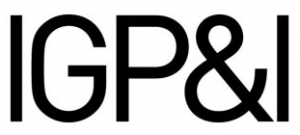Nigeria's national oil company, Nigerian National Petroleum Corporation (NNPC), issued letter on 8 September 2015 purporting to permit previously banned oil tankers to now load at Nigerian terminals, though the position is still far from clear.

Gard Alert: Possible Lifting of Nigerian ban of crude oil tankers
On 24 July 2015 our Gard Alert provided details of the prohibition by NNPC of 113 named tankers from engaging in crude oil/gas loading activities within Nigerian waters set out in a letter dated 15 July. There was concern and uncertainty as the reason for the ban was not explained and some of the vessels identified had not called at Nigeria for several years.
On 8 September 2015, NNPC stated in a further letter that the President of Nigeria has “approved the consideration of all incoming vessels into the Nigerian waters subject to receipt of [a] Letter of Comfort”. This is a requirement even if the vessel was not previously banned.
This is certainly a positive development, however, the position remains uncertain. There is no express revocation of the earlier ban only that all vessels are now entitled to be considered for loading. After consideration, a vessel may still be rejected for the previous (unknown) reasons.
The letter also states that a review is taking place into whether any tankers have previously engaged in illegal activities within Nigerian waters. It is unclear how that review will be conducted, but if evidence of suspect activity is found while the tanker is in Nigerian waters, the consequences could be very severe, even if the tanker owner is not at fault, e.g. the wrongful act was by a previous owner or the suspicions turn out to be unfounded.
The Letter of Comfort
We have seen a version of a Letter of Comfort which some tanker owners are now being asked to sign. The example we have seen raises some problems:
The NNPC requires “all Terminal Operators and Off-takers of Nigerian Oil and Gas” to submit a Letter of Comfort. The Letter of Comfort refers to a “Contract” so it has been assumed that the “Off-taker” means “cargo interests”, but some charterers have been asking tanker owners to sign it.
It contains an undertaking that the vessel will not engage in any illegal activity. In theory, this should present no problems for a tanker owner because it imposes no more obligations than those arising under Nigerian law anyway. However, laws can change at any time - even after a Letter of Comfort has been signed - and local practice at a port may not always strictly comply with the law, so issues of corruption would become even more serious under the Letter of Comfort.
The Letter of Comfort indemnifies the NNPC and Federal Government of Nigeria for liabilities arising from “the deployment of the Vessel for activities extraneous to the contract” – but “the contract” is not defined. Unless a party giving a Letter of Comfort has a copy of “the contract” they will have no way of knowing if or how the vessel may engage in “extraneous” activity, whether intentionally or otherwise.
The Letter of Comfort requires payments to be made on demand and without being substantiated. This imposes a heavy burden on the signatory in the event of a claim or dispute.
The Letter of Comfort says that if there is “any default”, the vessel may not load any further gas or crude oil within Nigerian territorial waters. It is unclear what kind of “default” is meant here, but it is assumed to be a breach of either Nigerian law or “the contract”. This is a potentially very severe penalty for what might be minor civil infringements/incidents, perhaps not even involving the vessel/owners.
A letter of comfort is not normally legally binding, but it appears that the Letter of Comfort wording here is intended to be binding, so its exact legal status is uncertain.
Some Members have enquired as to insurance cover if they take a commercial decision to sign a Letter of Comfort. Members and clients should bear in mind that insurance complications are likely to arise if liabilities, costs and expenses arise out of “illegal activities”. Also there will often be no cover for liabilities which would not have arisen but for the terms of a contract or indemnity entered into without the approval of the insurer. Since the terms of the Letter of Comfort are so wide, the potential scope of liabilities is difficult to envisage, and insurers are unlikely to wish to expose themselves to such unknown liabilities. The letter of comfort may also give rise to liabilities which, by their very nature, are not insured.
Recommendations
The situation is likely to develop over the coming months, and further information will be provided when available. In the meantime, we recommend tanker Members and clients:
To take the situation seriously and seek advice if affected.
If owners of previously banned tankers, remain extremely cautious about those vessels calling to Nigeria.
To avoid signing Letters of Comfort if at all possible. Many tanker charterparties will not oblige the owner to sign Letters of Comfort, so seek legal advice if unsure about what you are being asked to do.
To try to ensure that the rights, duties and risks as between tanker owner and charterer are as clearly defined as possible for any calls to Nigeria. INTERTANKO has prepared a Nigeria Trade Clause which can be accessed on the members’ section of their website.
To be extra vigilant in dealings with and reporting to all local authorities if loading in Nigeria - it is understood that the Nigerian authorities are following up at discharge ports to monitor outturn and cargo. Failure to comply with out-turn verification requirements may also be deemed “illegal activity” or a “default” under a Letter of Comfort.
Please direct any questions to your usual Defence cover point of contact.


